#mystique magazine
Text
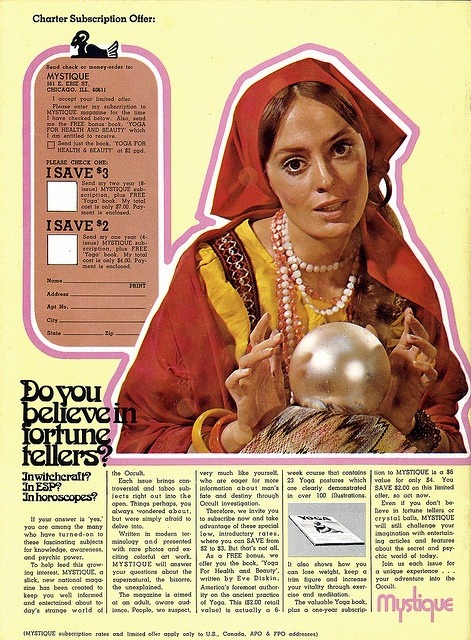
ad for Mystique magazine (1973)
61 notes
·
View notes
Text

Rebecca Romijn-Stamos as Mystique in X-Men, Official Playstation 2 Magazine UK Issue n°5 (2001)
#rebecca romijn#mystique#x men#2000#make up#special effects#official playstation 2 magazine#ps2#magazine#issue#uk#n°5#2001
1K notes
·
View notes
Text
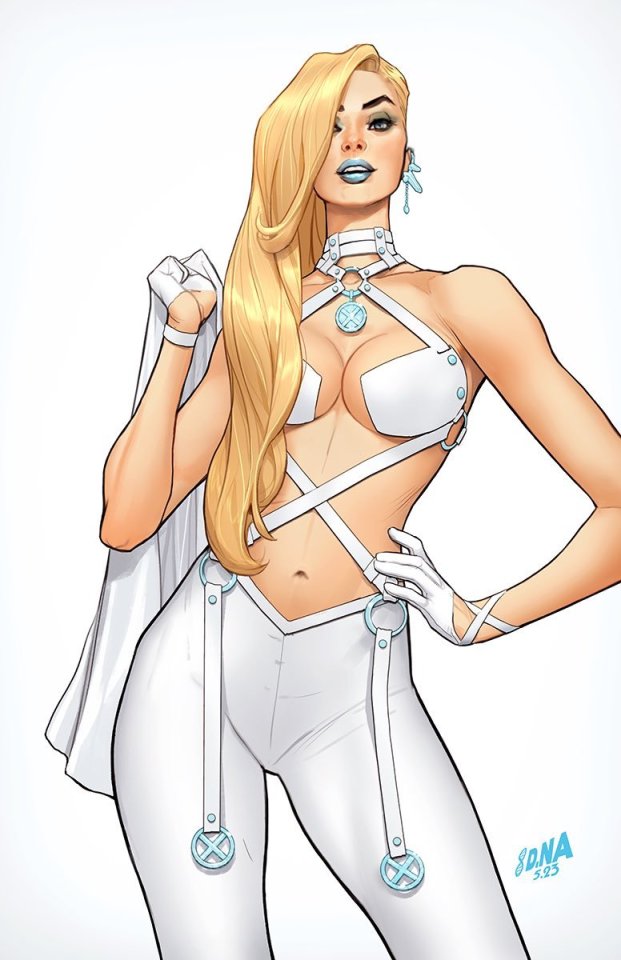
X-Men: Hellfire Gala 2023 #1
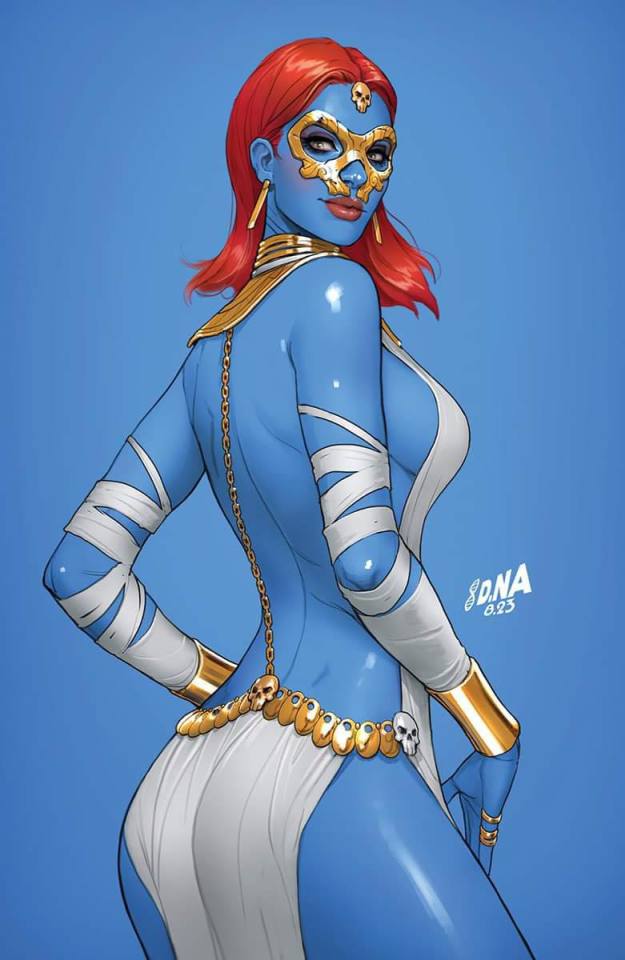
X-Men #27 (vol. 6, 2023)
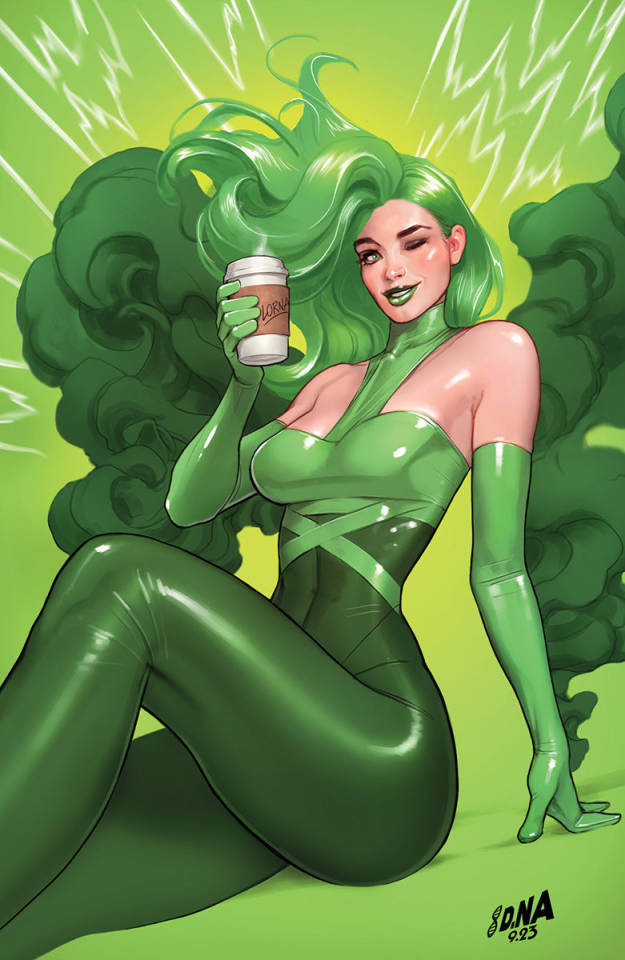
Wolverine #38 (vol. 7, 2023)
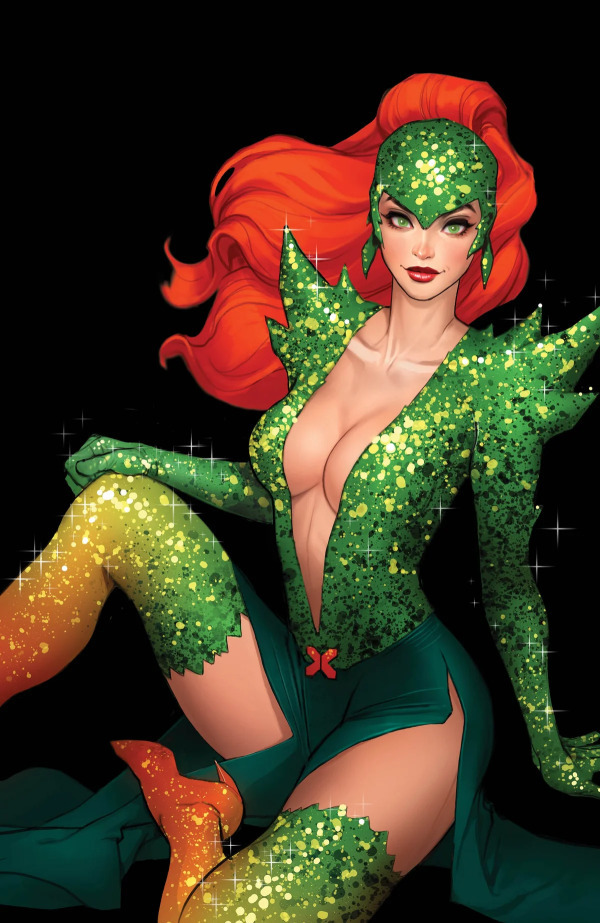
Jean Grey #1 (vol. 2, 2023)
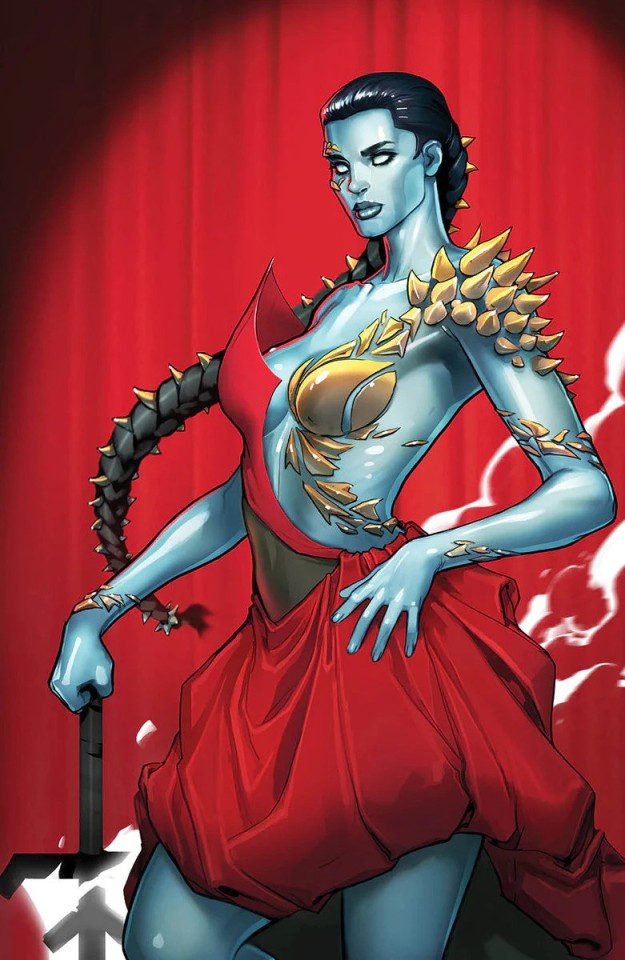
X-Men #25 (vol. 6, 2023)
David Nakayama Hellfire Gala (2023) Magazine Variant Covers
(open images for higher quality)
+bonus under the cut
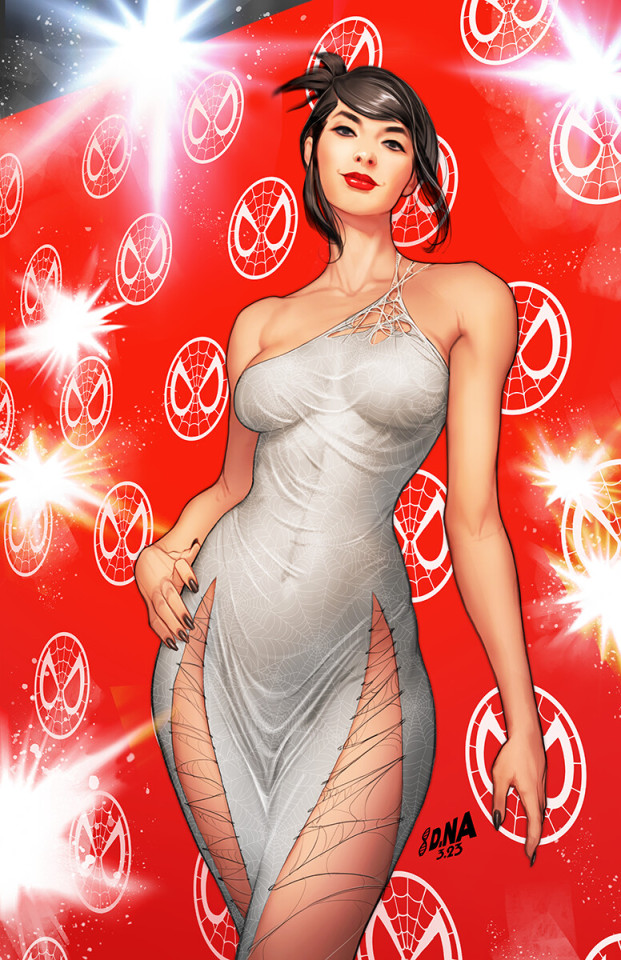
Silk #1 (vol. 5, 2023)
#hellfire gala#x-men#hellfire gala 2023#david nakayama#marvel#comic books#comics#white queen#emma frost#ice princess#mystique#raven darkholme#polaris#lorna dane#mistress of magnetism#jean grey#marvel girl#phoenix#rasputin iv#magazine covers#magazine
125 notes
·
View notes
Text

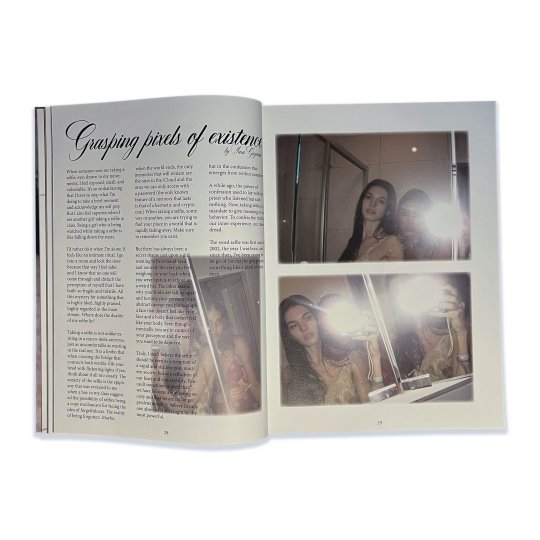

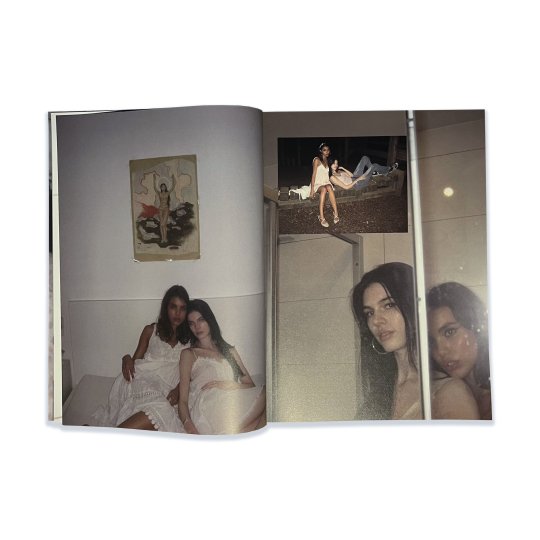
Delude Magazine Issue 01
#Coquette#female hysteria#feminine urge#female manipulator#femme fatale#the feminine mystique#femcel#gaslight gatekeep girlboss#manic pixie dream girl#girlblogging#lana del rey#delude magazine#lana del rey aesthetic#living doll#coquette fashion#coquette aesthetic#it girl#girl blogger#femcelcore#sofia coppola#softcore#soft girl#soft aesthetic#lana del rey icons#dior girl#coqette#the virgin suicides#dollette aesthetic#dollycore#girls of tumblr
1K notes
·
View notes
Text
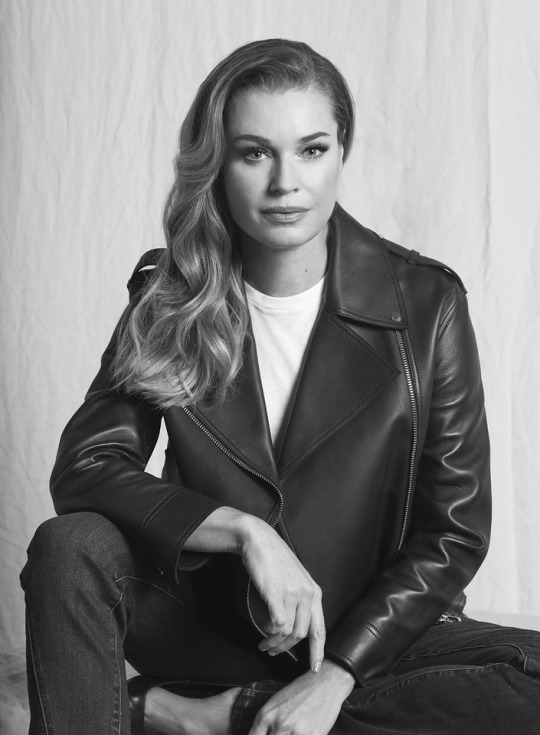
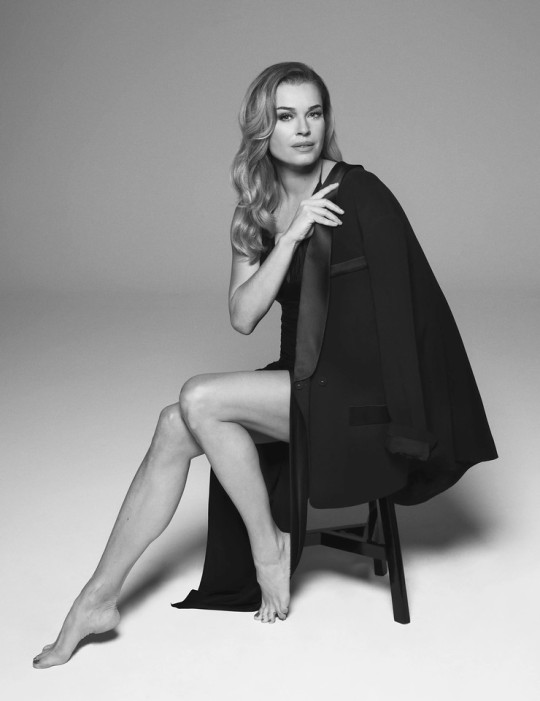
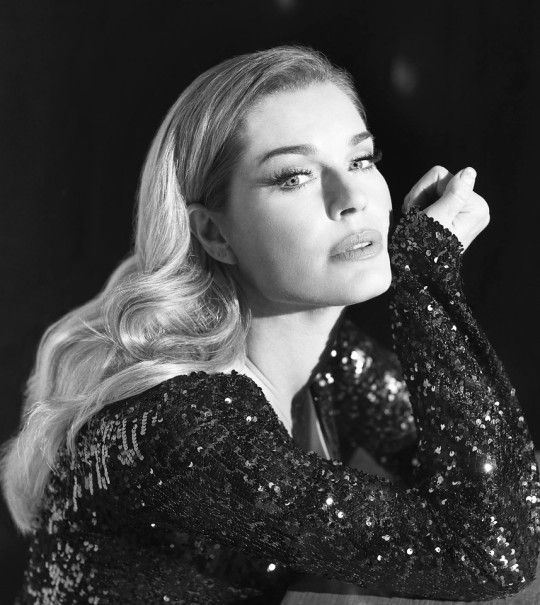
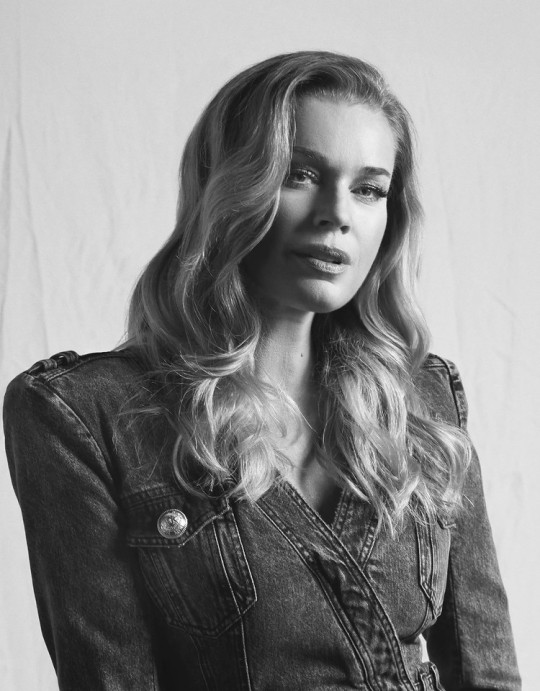
Rebecca Romijn for the cover of Watch Magazine's May/June 2022
#rebecca romijn#una chin riley#watch magazine#strange new worlds#photoshoot#i'm totally in love with all of them#in the low ones she looks so much like jennifer lawrence's mystique
111 notes
·
View notes
Text
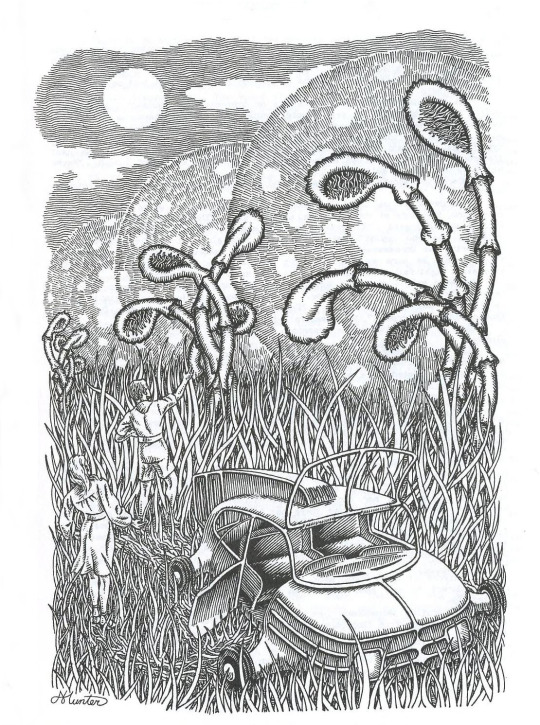
Alan Hunter (1923-2012), ''Mystique'', #13, 1988
Source
#alan hunter#mystique#pulp magazines#ramsey campbell#black & white illustration#black and white illustration#horror fiction#science fiction art#scifi art
28 notes
·
View notes
Text
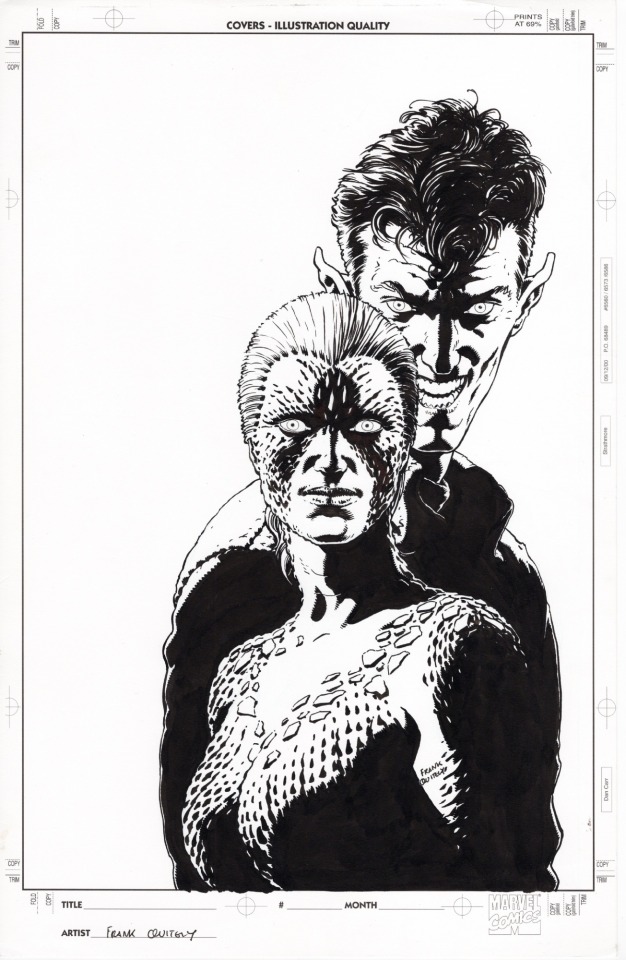

Wizard Magazine # 140 by Frank Quitely
#Frank Quitely#Wizard Magazine#X-2#Cover Process#Process#Mystique#Nightcrawler#X-Men#Marvel Comics#Marvel#Comics#Art#Illustration
42 notes
·
View notes
Text

'Mystique' is a fictional fashion magazine featured in my Sixties novels. This is the French issue for April 1968.
#sixties#1960s#fiction#saga#mod style#series#novel#60s#mods#mystique#magazine#jimmymack1967#jimmymack1968
2 notes
·
View notes
Text
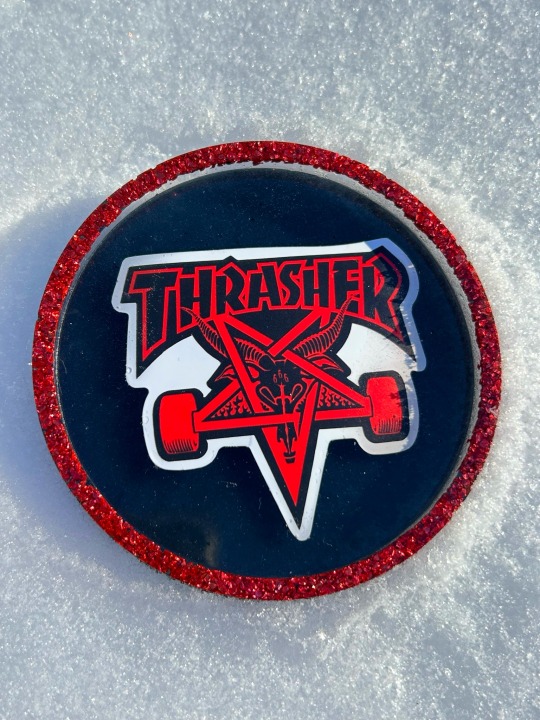
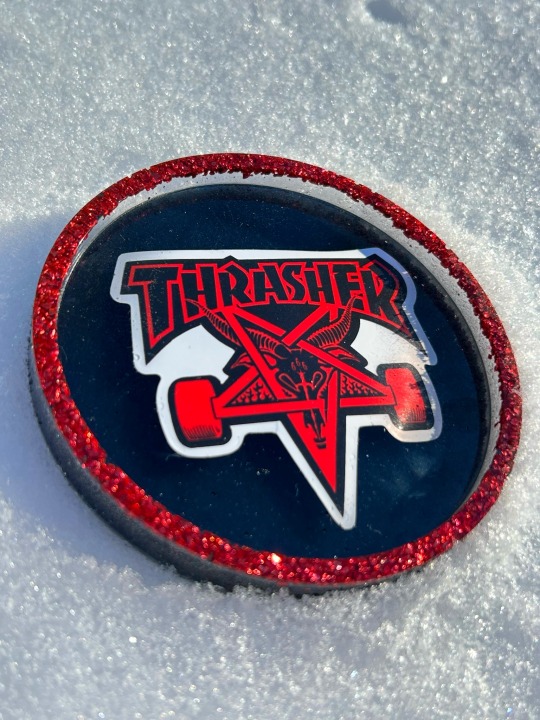
Thrasher Coaster 🛹
#mine#thrasher#thrasher magazine#thrasher coaster#my art#Appalachian Mystique#skatelife#skateboarding#skateanddestroy#skate aesthetic
1 note
·
View note
Text

#dark feminine energy#dark aesthetic#dark feminine aesthetic#femme fatale#feminine mystique#lesbian pride#gay girls#italian vogue#vogue magazine#90s style#90s grunge#girl blogger#glam blog#blogger#fashionblogger#seduction#80s fashion
0 notes
Text
anthony panties triple whammy
I remember one time getting these two suitcases that were just filled with like lingerie...
anthony green on colin's podcast, the cosmic nod. recorded on april 8 2020. libsyn / spotify / apple podcasts [will add full transcript later]
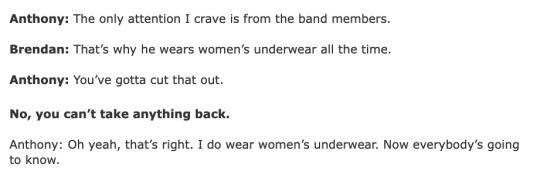
Anthony: The only attention I crave is from the band members.
Brendan: That’s why he wears women’s underwear all the time.
Anthony: You’ve gotta cut that out.
[INTERVIEWER:] No, you can’t take anything back.
Anthony: Oh yeah, that’s right. I do wear women’s underwear. Now everybody’s going to know.
anthony green and brendan ekstrom in an interview from asylum magazine on feb 10 2005, the night of circa's first show. accessed via the internet archive for asylummagazine.com and thischangeseverything.org

“I pretty much would never have had a girlfriend if it wasn’t for that whole mystique thing,” concludes Ekstrom.
The group laughs. “But it's not like I stand in the corner in the shadows,” deadpans Ekstrom, obscuring his face with his hand, “and then girls are like, ‘Oh word, I need to go buy me some panties with hearts on them’.” More laughing. “None of that ever happened." Pause. "Not with girls.” Still more laughing.
brendan ekstrom with the rest of circa survive in an interview from wonkavision magazine. exact date not provided; first logged in the internet archive on april 14 2005. accessed via the internet archive for wonkavisionmagazine.com
#anthony green#brendan ekstrom#colin frangicetto#circa survive#agwdcu#only slightly (presumably related to first circaween) but thats speculation !#if you arent getting the implied point here: anthony probably flirted with brendan while wearing womens underwear#ok im about to be late to class LOL BYE#audio
143 notes
·
View notes
Text
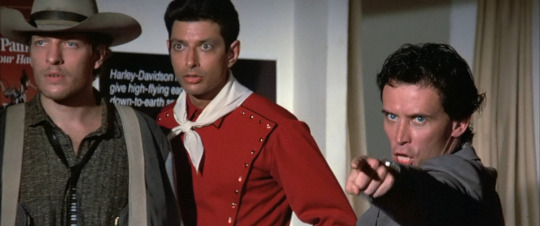
August 1984. This won't change anyone's feelings about cult movie perennial THE ADVENTURES OF BUCKAROO BANZAI: ACROSS THE EIGHTH DIMENSION one way or the other, but if you're wondering what the hell the deal is supposed to be with Buckaroo Banzai and his team, the answer is, "It's an obvious pastiche of the pulp hero Doc Savage."
Launched in 1933, Doc Savage was one of the leading adventure heroes of the pulp magazines. Doc (whose full name was Clark Savage Jr.) was scientifically trained from childhood to the peak of human perfection, singularly adept in everything from mechanical engineering to medicine to martial arts. He had a secret headquarters called the Fortress of Solitude and a whole array of specially designed vehicles and equipment, but he was also a public figure, with offices in the Empire State Building. Doc had a team of eccentric, highly specialized aides — Monk Mayfair, Ham Brooks, Renny Renwick, Long Tom Roberts, and Johnny Littlejohn — who each had a particular skill and a couple of distinctive personality traits (for instance, Monk was a skilled industrial chemist, but also an "ape-like" brute with a ferocious temper). They were sometimes aided by Doc's cousin, Pat Savage, who was almost as capable as Doc, although he tried to keep her out of the fray because she was (gasp) a girl.
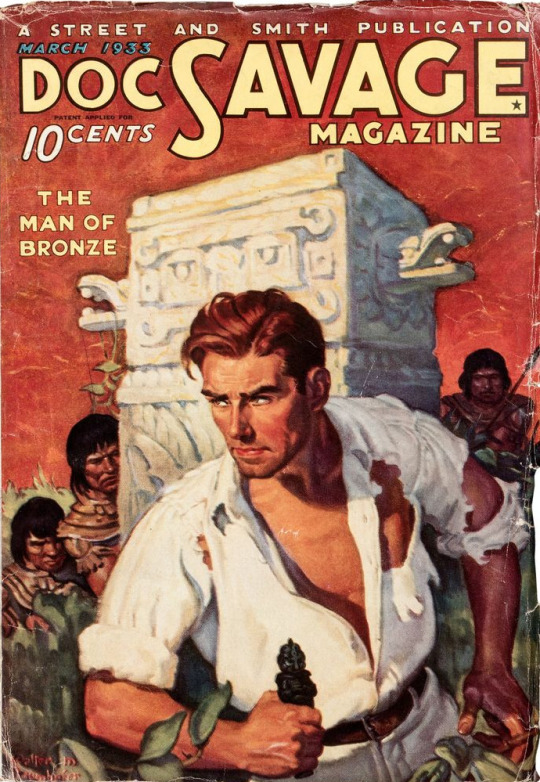
This was a fairly common pattern for pulp heroes. For instance, the pulp version of the Shadow (who was distinctly different from the radio incarnation) relied on a whole network of agents, some appearing only once or twice, some recurring across many of his published adventures. From a narrative standpoint, the agents and assistants had two principal purposes: The first was to offset the rather overpowered heroes — pulp heroes didn't necessarily have superhuman powers, but even those who didn't tended to be preternaturally skilled at nearly everything, so it was convenient to limit their direct involvement in an adventure to crucial moments, and let the assistants (who could be much more fallible) do much of the legwork. The second object was to beef up the characterization. Doc Savage was morally irreproachable as well as absurdly multi-talented, so there wasn't a lot to be done with him character-wise, while maintaining the mystique of a character like the Shadow required him to remain a fairly closed book.
Although the pulp heroes were a huge influence on early comic book superheroes like Superman and Batman, some of these conventions didn't translate well to other media: In a 13-page comic book story or half-hour radio episode, having too many characters was cumbersome (and expensive, where it meant hiring extra actors), and comic book readers normally expected to follow their four-color heroes quite closely, even before the breathless internal monologue became a genre staple. So, Superman inherited Doc Savage's Fortress of Solitude, but not his "Fabulous Five" assistants, while heroes like Batman and Captain America generally stuck with a single sidekick rather than a team of aides. Even the late Doc Savage pulp adventures (which ended in 1949) de-emphasized the assistants to keep the focus more on Doc himself. Ultimately, the pulp heroes didn't really have the right narrative center of gravity for visual media, which is why they've become relatively obscure, despite repeated revival attempts. The 1975 Doc Savage movie with Ron Ely, for instance, was a notorious commercial flop, and elements like Doc's childishly bickering assistants seemed odd and dated, even taking into account the film's nostalgia-bait '30s period setting.
What BUCKAROO BANZAI tried to do was to bring that old pulp hero formula into the modern era with a big infusion of '80s style and humor. Like Doc Savage, Buckaroo is a wildly gifted polymath (in the opening scenes, he rushes from performing brain surgery to test-driving his Jet Car through a mountain), so famous and important a personage that he puts the president of the United States on hold, and he surrounds himself with an array of brilliant, eccentric aides with silly nicknames who play in his rock band when they're not fighting crime or doing advanced scientific experiments.
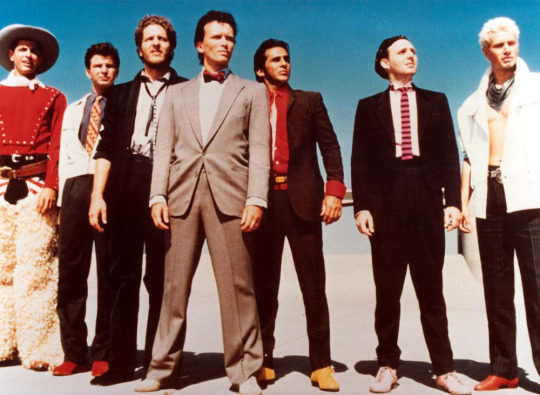
Alas, judging by the poor box office returns, general audiences were no more amenable to the '80s version of this formula than they had been to DOC SAVAGE: MAN OF BRONZE nine years earlier, even with the 1984 film's extraordinary cast and memorably witty dialogue. Granted, even many of the movie's most diehard fans are baffled by the convoluted plot — a crucial expository scene where the leader of the Black Lectroids (Rosalind Cash) explains much of what's going on is nigh-incomprehensible without subtitles or closed captioning — but beyond that, THE ADVENTURES OF BUCKAROO BANZAI is essentially an extended riff on a particular slice of pop culture that had long since dropped out of the public consciousness, which is both part of its charm and also its commercial undoing, at least as mainstream entertainment.
(Also, if you're wondering, yes, the TOM STRONG series by Alan Moore and Chris Sprouse is also an obvious Doc Savage pastiche, although at least some of its plot and character concepts were probably retoolings of unused ideas from Moore's earlier Maximum Press/Awesome Comics SUPREME series, which was an extended pastiche of the pre-Crisis Superman.)
#movies#buckaroo banzai#the adventures of buckaroo banzai across the eighth dimension#w.d. richter#peter weller#jeff goldblum#clancy brown#doc savage#pulp heroes#street and smith#walter m baumhofer#the shadow#michael santoro#pepe serna#billy vera#lewis smith#one of the amusing things about the jeff goldblum character#is that his eccentricity clearly precedes his involvement with buckaroo banzai#he's just a brilliant neurosurgeon who's been looking for a chance#to wear his roy rogers outfit and fight crime
76 notes
·
View notes
Text
Starstruck and Metal | E.M.
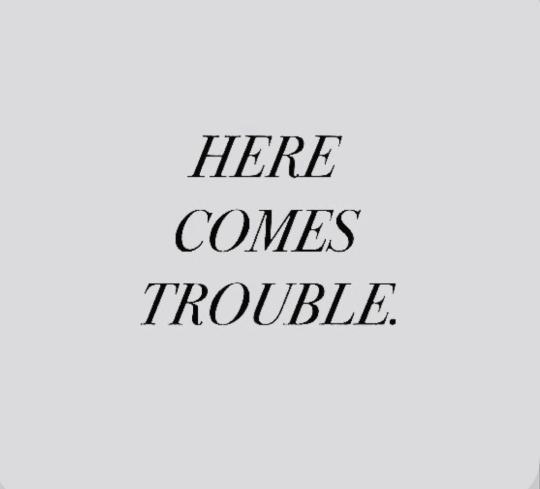

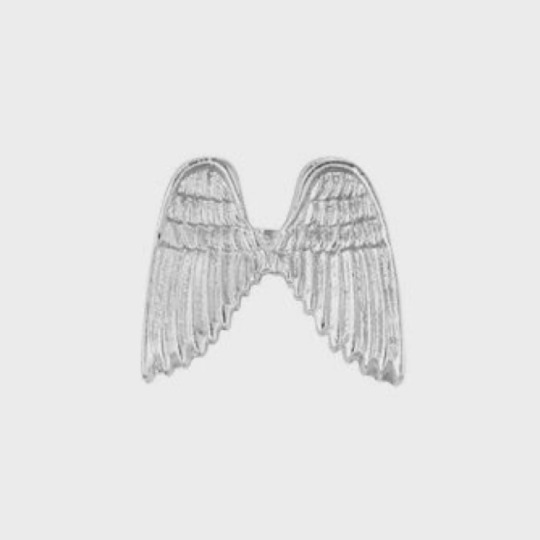
Summary: [4.3k] you meet eddie for the first time. it doesn't go quite like you expected.
Pairing: rockstar!eddie munson x fem!music journalist!reader
Warnings: none!
Notes: huge thank u to my bestie chuck for beta reading 🫶 also if you solve the crossword hint i love u
previous chapter | series masterlist | next chapter

InStereo magazine was not The Rolling Stones, but it was a start. The modest music magazine had a humble following, enough to earn some hums of recognition whenever someone made the mistake of asking what you did for a living. Most days, it’s great. You relish in the joy of working in a field some people only dream of entering. The leap from column writer to main article was a large one, but you insisted that you were ready. Your first assignment as a music journalist and of course you got stuck with Eddie fucking Munson.
Any self-respecting music journalist, anyone with some skin in the game would have laughed in the face of their editor. But instead, you smiled. You nodded enthusiastically, mimicking the bobblehead that has since been removed from your desk. When you decided to become a music journalist, you wanted to write about people who were changing the field. Instead, you were being tasked with writing some puff piece being used to save a wannabe rock star’s reputation. God forbid you gain the reputation of being a difficult woman–in a male-dominated industry no less–by turning down such a great opportunity.
Even if that opportunity included spending a day with Eddie fucking Munson.
You paid out of pocket for the cassette of Corroded Coffin’s debut album that was currently underscoring your drive to West Hollywood. You refused to meet the frontman without having listened to their music beforehand. They were good. A little rough around the edges, but it was to be expected. Outside of the occasional headlines, you hadn’t heard much about Eddie or his band. Corroded Coffin was making ripples, not waves. Of course, no one really cared about the music when they could be reading about who and what their lead vocalist was doing.
Still, you find yourself parking outside of a humble ranch-style home in a neighborhood full of similar housing that likely cost a fortune to live in. The modest proceeds from Corroded Coffin’s tour have obviously paid off, considering that nice area and affordable don’t usually exist in the same sentence when talking about LA housing. The June sun is beating down on the empty street, and you’re thankful that you decided to wear a T-shirt and jeans. You tell yourself that the sweat collecting on your brow is from the heat and not nerves.
Double-checking that you have the right address, you slam the door shut on your sedan and take a deep breath. The air feels cleaner here, less smoggy. You’re not sure if it’s because of the altitude or the tax bracket of the people who live here. Probably both. You reach into your purse and feel around for what you already know is inside. Pen. Notepad. Tape recorder. The holy trinity for a music journalist.
There were very few topics that Eddie wasn’t willing to talk about. You guess that when you’ve had your insides strewn across the pavement for everyone to see, you don’t bother trying to uphold any semblance of mystique. Beginning the daunting trek toward your assignment, you remind yourself of two things:
1) Don’t ask about his father
2) Don’t ask about what happened in Hawkins, Indiana in 1986
The first rule seemed simple enough. As far as the public was concerned, Eddie Munson came to Hawkins at the age of 12 to live with his Uncle Wayne like how a fully formed Venus sprang up from sea foam. He wasn’t and then he was. End of story. The fact that Eddie’s management went out of the way to make sure his father wasn’t brought up only made you more curious.
The second rule was a little harder to accept. Anyone who knew anything about Eddie Munson wanted to know about 1986. Despite the fact that his highly publicized murder charges and subsequent exoneration are part of what caused Corroded Coffin to skyrocket to fame, he’s remained very tight-lipped about the whole situation. He plays off every question about it in interviews with a smirk and a sly comment. Just charming enough to get away without answering. Just vague enough to keep people guessing. Maybe his publicist wasn’t such a waste after all.
Eddie Munson opens the door a few moments after you ring the bell. Using a ringed hand to shield his eyes from the midday sun, he squints at you. A pair of sweatpants hang low on his hips. He has a severe case of bedhead despite the fact that the time on your watch indicates that it’s nearly two in the afternoon. The confusion that draws his brows together also indicates that he has absolutely no idea who you are. Resisting the urge to roll your eyes, you state your name and purpose before realization graces his features.
“It’s you! Shit, yeah! You’re here for the– the thing!” He tosses a careless look over both of his shoulders before widening the opening. “Come on in.”
Eddie closes the door behind you and rushes down the hallway in order to put some real clothes on, leaving you standing in the empty living room. The inside is surprisingly clean for someone who’s gained the reputation of being a hot mess. It smells like cigarettes, weed, and lemon pledge. The lemon scent is strongest as if someone was trying–and failing–to use it to cover up the previous two. A record player is tucked into a corner, the vinyl still spinning. A line of electric guitars is propped up against the back wall, each of them no doubt costing more than your monthly rent. One of the stands is noticeably empty and you glance to your left to see a beat-up acoustic resting on the couch. On the coffee table, there are piles and piles of scrap sheets of paper. For most of them, the handwriting is too illegible to read or it’s been crossed out. Eddie seems to write lyrics like he lives his life: fast and all over the place.
Stepping closer, something along the upper corner catches your eye. Slyly lifting up a pile of paper, being sure not to disturb the configuration, you find that your suspicions are correct. Eddie received the same copy of Sub Rosa as you did. Obviously, it didn’t go over well. He’s used a pen to black out his eyes. Much to your amusement, you see he’s also drawn horns and a tail. The hand that’s flipping off the camera is illustrated to be holding a pitchfork.
That’s not the full extent of Eddie’s doodling, though. On the bottom right-hand corner of the magazine, there’s a smaller picture of him standing next to a certain brown-eyed beauty. You’re quick to note that he’s drawn a crude halo and angel wings on his long-legged companion. They’ve been scribbled out as an afterthought, making the halo look more like a crown of thorns.
So, you think to yourself, he’s a little immature. You can work with immaturity. Immaturity means that he won’t be as guarded as some of the other celebrities your coworkers have had the misery of meeting. In fact, from what little you know about Eddie, you wonder if he even has any guard at all. He did leave you alone here with stacks of potential songs for his band’s next album. If you were a better journalist and a worse person, you would probably take the time to decipher his chicken scratch and see if you could glean any insights into his creative process. But you don’t. Instead, you release the stack of papers and wait.
For a moment, you don’t know what to do with yourself. You’ve never been inside of a famous person’s house before. You’re not sure if you should sit down and make yourself comfortable or if Eddie has something else planned for the two of you to do. The specifics of your assignment were intentionally vague, most likely to accommodate Eddie’s spontaneity.
Venturing further into the living room, you come to stand in front of a shelf. Brushing your fingers across the collection of vinyl, you tilt your head to read the names along the spines. There are the usual suspects–Dio, Metallica, and Judas Priest–but what surprises you is that, in the midst of all the metal and hard rock, there’s an array of old-school country music. At the end of the lineup is the most surprising one of them all; Sentimentally Yours by Patsy Cline. It’s exceedingly worn, cracks and creases litter the empty sleeve. If you were a betting woman, you would say that the record is currently on the player across the room.
A muffled crash followed by a string of curse words breaks you out of your reverie. Eddie opens the bedroom door with the finesse of someone who is obviously used to being the center of attention. He’s traded his sweatpants and tank top for a pair of ripped black jeans and a v-neck. It felt reassuring to know that you hadn’t underdressed for the occasion.
It also gives you a moment to drink in the blinding light that was Eddie Munson. He’s leaner in person. Though he always looked lithe in every photograph you saw of him, his frame seemed more imposing and large. Maybe all the stars just look that way when they’re so high above you.
He was taller, too. The boots on his feet surely aided in that, given that the soles were at least an inch thick. Still, you didn’t anticipate how much you would have to tilt your head up just to look him in the eyes.
There, standing in Eddie Munson’s rented living room, you realize something; You’re absolutely starstruck.
Although you had turned up your nose at the prospect of interviewing him and regarded his reputation with the same disdain you reserved for bad drivers and shitty landlords, you were still a person after all.
With all of the stars around, it’s easy to think of Los Angeles as the center of the universe. But you are not a star or anything even close to it. You’re some space debris, hopelessly floating and waiting for something bigger to come around and influence you with its gravitational pull.
Eddie is a heavenly body. You can’t help being pulled into his orbit.
“So, I see you’ve found my collection.” His voice is still rough with sleep. The sound makes you weak in the knees.
“Sorry, I didn’t mean to snoop.” You mumble, tucking Patsy Cline back into the shelf. “You’ve got some really good stuff here.”
“Don’t worry about it. Actually, that reminds me, I have something for you.” He swiftly turns and stalks back towards what seems to be his bedroom, motioning for you to follow him.
The blood rushes out of your cheeks. The terms of your interview suggested that you would have a lot of access, but this was different. This was up close and personal. Your feet seem to have a mind of their own because while you’re still wrapped up in the fact that you’re gonna see Eddie Munson’s bedroom, you’re already following him down the hallway and through the open door.
It’s about as messy as you would expect. The furniture is all pale wood and earth tones, fitting the mid-century modern stylings of the rest of the house. You suspect that Eddie took the time to clean up a little while you were rifling through the stacks of paper. The bed is haphazardly made. There’s an ashtray on his bedside table, filled with the remains of a few cigarettes.
“I’m not supposed to smoke inside. Shh.” He brings his index finger to his mouth, pink lips barely brushing the skull ring he’s wearing. “Don’t tell anyone.”
You let out an airy laugh. Being reprimanded for smoking inside is the least of Eddie’s worries and you both know it.
Eddie’s nimble fingers skim the top of the dresser, brushing aside even more sheets of scrap paper. A couple of guitar picks plummet to the floor, but he pays no mind.
“I heard that metal isn’t usually your thing.” He remarks, still sifting through the clutter.
That much is true. While you dabbled in a little bit of everything, not only as part of your job but also as part of your interest in music, metal wasn’t usually the genre you gravitated towards. In fact, the most metal album that you had listened to recently was written and produced by the man standing in front of you.
“It’s not, but I’m open to everything.”
“Aha! Here it is.” Eddie holds up the cassette like it’s the key to the universe. Handing it to you, you can see that the writing on the sides is reminiscent of what you saw in the living room, though slightly neater. You’re familiar with some of the bands listed, but the songs don’t ring a bell. “I thought I would broaden your musical horizons.”
You gawk at him. For someone whose job is about words, you can’t find any. He took the time to make you a mixtape?
“Track five is a personal favorite.” Eddie says, leaning towards you and tapping the tracklist, obviously unshaken by your inability to form a coherent thought.
“Thanks. I’ll give it a listen.” You manage to choke out, tucking the cassette into the front pocket of your purse.
Looking around the room, you see that there’s a battered copy of The Lord of the Rings on his bedside table. The corners are frayed, and you’re certain that you could accidentally tear the cover off of the paperback if you’re not careful. Cautiously, you trace the spine with your finger, waiting for Eddie to say something. To tell you that it’s the one thing that’s off limits. But he doesn’t. He just stands there, watching you. Opening it, you can see Property of Eddie A. Munson written underneath the title in a childish scrawl.
“You like books? I mean–you’re a writer, so of course you like books–I mean, have you read that one?” Eddie is visibly flustered, the words coming out of his mouth at an alarming rate. It almost makes up for the way he rendered you speechless moments ago.
“I’m more of a Dune girl myself. But, I love The Lord of the Rings. My dad used to read it to me before bed every night.”
“Yeah?” A small smile tugs at his lips before he practically whispers his next words. “Mine too.”
A flash of something you can’t quite decipher crosses Eddie’s face.
“Right! Where are my manners? Would you like something to drink?” He shuffles out of the room like his life depends on it. You’re still reeling at the fact that he brought up his dad unprompted. Keeping a brisk pace, you put the book down and follow him into the kitchen.
“We have…” He trails off, opening the door to the refrigerator. “Nothing.”
He shuts the refrigerator and dashes to the table by the front door. He mumbles to himself before grabbing a few things, shrugging on a jacket, and finally turning to face you again. A pair of sunglasses covers the half of his face that isn’t plastered with a mischievous grin. From the tips of his fingers hangs a set of car keys.
“You hungry?”
–
You should’ve known that Eddie Munson would try to kill you within 20 minutes of meeting him. Lifting up the garage door, he reveals that the car keys were in fact, not car keys but keys to a motorcycle. The vehicle in question is an absolutely stunning deathtrap. It shines so beautifully that you can see your terrified face in the warped reflection.
Putting his helmet on, Eddie straddles the bike and looks at you.
“C’mon.” Eddie smiles wolfishly, tilting the spare helmet towards you. “I’m a safe driver. Promise.”
You’re still standing frozen. His wolfish grin melts into something more patient.
“Hey, if you don’t want to take the motorcycle, just say the word. I’m not gonna make you do anything you don’t wanna do.”
Despite the sincerity in his voice, you can’t help but take the words as a challenge.
“No, it’s fine. I’m fine.” You profess, though the shake in your voice is evident. Grabbing the helmet out of his hands, you ignore the way your face heats up when your fingers brush.
Eddie takes gross advantage of California’s lane-splitting laws, leaving you clinging to his leather-draped torso for dear life. Outside from the occasional shout of assurance that you can’t understand, the ride is quiet but for the roar of the bike and the wind in your ears. You’re vacillating between being absolutely terrified of crashing and secretly relieved at the fact that you didn’t have to make small talk on the drive from his place to wherever he was taking you.
You were very close to liking Eddie Munson. Now, you were sure that he was sent as some kind of karmic punishment.
“Parking in L.A. is always a pain. That’s why I love this baby,” He gingerly pats the handles as he kicks the parking brake down. “She can fit basically anywhere.”
You hum in agreement, mostly just happy to have made it to your destination in one piece. While Eddie hops off the bike with ease, you have a little more trouble. Swinging your leg over, your toe catches on the fuel tank, causing you to stumble and nearly fall to the ground. Out of the corner of your eye, you can see that Eddie is biting back a smile. He offers a calloused hand out to you. You brush it away out of embarrassment, planting both feet firmly on the ground and taking in your surroundings.
You had expected Eddie to take you to one of L.A.’s finer dining venues. Somewhere with fancy mood lighting and clientele with pockets so deep that they don’t even bother to put the prices on the menu. His management was footing the bill, after all.
The building that sits before you is none of those things. The diner is old and slightly dilapidated. Graffiti mars the stucco that hasn’t already crumbled away. The neon sign that says Zazie’s! blinks drowsily, more of an eyesore than eye-catching.
Eddie opens the door for you. As the bell above it jingles, you’re hit with a rush of conditioned air and canned nostalgia. The walls are covered in artifacts from a bygone era of poodle skirts and letterman jackets. A lonely jukebox sits in the corner, playing a soft hum to a Billie Holiday song you have long forgotten the name of.
A plump woman sits behind the counter doing the crossword in the newspaper. Likely, the same one you were doing that morning. A thoughtful look is etched into her soft features, and you wonder if she’s also stuck on 57-down: Idle during the heist. The ten-letter space confounded you so much that you were almost late. Luckily, it doesn’t seem like Eddie is the type of person to care too much about punctuality. At the sound of the bell, she looks up, squints, and smiles.
“Is that you, Toto?” The glasses that sit on the tip of her nose are attached to a chain around her neck. She lets them fall to her chest, her voice bright and amiable.
“You know it is, Dorothy!” Eddie gushed, an award-winning smile back on his face.
They fall into easy conversation, making it obvious that he’s a regular here. You keep glancing at him trying to find hints of ingenuity but there are none. Eddie regards the woman with the warmth and respect that you would expect from a boy scout, not a rockstar.
Sliding into a booth, Dorothy hands you both a menu and leaves to make a fresh pot of coffee.
“You have to try the french toast, it’s divine.” Eddie barely steals a look at the laminated folder before folding it back up and putting it down on the table.
“I’ve never really been a french toast person. I don’t know if I wanna risk it.”
Eddie gives you a pointed look, sunglasses slipping down the slope of his nose. “You rode a motorcycle. How much more risky is a plate of french toast?”
“Maybe that was all the risk-taking I had in me for one day.” You force yourself to shrug noncommittally. You don’t know why breakfast food is the hill you’ve chosen to die on, but you’re going down swinging.
“Well, you already trusted me with your life.” Eddie takes the sunglasses off and tucks his fist under his chin, forcing you to look into his deep brown eyes. “Think you can trust me with this?”
Suddenly, all of the fight in you disappears. There’s that sincerity in his voice again. You realize then that the best and worst thing about Eddie Munson is how genuine he always sounds.
“Yeah, I do.”
The smile on his face is so bright that you feel compelled to look away. Eddie orders for both of you. It’s enough food to feed a small army, but it seems that Dorothy is used to it because she leaves the table with a wink and says if y’all need anything just holler!
“Do you mind?” You say, pulling out the notepad and pen from your purse.
Eddie freezes for a fraction of a second. It’s almost imperceptible. Almost. In the small amount of time you’ve known him, it has become abundantly clear that Eddie wears his heart on his sleeve. Recovering quickly, he gives you the go-ahead and smiles. For the first time today, his grin doesn’t quite reach his eyes.
“So,” You begin, clicking the button on your ballpoint. “I have to ask. Toto?”
Eddie barks out a laugh. He goes on a whole spiel about how he was having a terrible day and walked into the diner feeling homesick and hungry. When he first came to L.A. he felt like Dorothy stepping into the technicolor world of Oz. Once the novelty wore off, he found himself missing when the world used to be so black and white. Upon telling the wise waitress, aptly named Dorothy, she lovingly told him, Toto, I’ve a feeling we’re not in Kansas anymore. The nickname stuck ever since.
The story almost sounds rehearsed. A perfect sound bite that shows how you can take the boy out of the Midwest, but you can’t take the Midwest out of the boy. And yet, you feel inclined to believe him. Eddie just seems to have that effect on people.
The food finally arrives and you’re amazed to find that Eddie’s eyes are not bigger than his stomach. He talks about music and his band in between bites of pancakes and hashbrowns, both of them drowned in an inch of syrup. He speaks of his friends back in Indiana with a certain fondness, but you can’t help but notice how avoids naming his hometown. He also never refers to Hawkins as back home, instead saying where I’m from.
Conversation between the two of you flows as easily as the never-ending coffee from Dorothy’s pot. It’s almost too easy to forget that this is an interview. Remembering yourself, you take a moment to ask Eddie one of the harder-hitting questions you have in your back pocket.
“What about Evelyn Chau?”
Eddie winces. The open book that was sitting before you shuts tight with a resilient slam. The mouthful of pancakes and syrup seems to turn to sludge as his chewing slows. Despite having no regard for table manners earlier, he points at his lips and holds up a finger to indicate that he needs a minute to swallow.
After taking a sip of coffee and wiping his mouth with a paper napkin, he slouches in his seat and crosses his arms defensively.
“What about Evelyn Chau?” He repeats your question back to you but with an unmistakable air of forced nonchalance.
You want to crumble under his pointed gaze, but you don’t. You steel yourself with the reminder that asking uncomfortable questions is part of your job description. Besides, it would raise many more alarms if you didn’t ask about the raven-haired model spotted painting the town with him than if you did.
“Everyone wants to know if you’re together.”
“Everyone.” He exaggerates the word, using his index finger to trace the lip of his coffee cup. “Does that include you?”
The smirk on his face indicates that he’s either messing with you or flirting with you. Maybe both.
“Well,” you demure. “are you?”
“Evie is just a friend.” Eddie’s still perfectly composed, but the familiarity with which he says her nickname betrays him. His face twitches when he catches his slip-up. “A really close friend.”
It’s already too late. He couldn’t convince you that she was just a friend if he tried. A flash of a crossed-out halo and crooked angel wings comes to mind.
You’re about to ask him another question, but Dorothy and her impeccable timing interrupts the moment by placing the check on the table. Eddie throws down a few bills from an old leather wallet, while you’re trying to figure out how you can spin a two-hour diner date into an entire article.
Eddie stretches as he stands up, the hem of his black v-neck raises to expose a tattoo on his right hip that snakes down further than you’re supposed to look. On the other side, you catch a muddled array of purple and red scar tissue. Averting your eyes, you look up and are met with a stony gaze. He caught you staring.
“What do you say we get outta here?”
Because you’re a very stupid, stupid woman, you agree.

likes are appreciated, comments and reblogs are cherished ♥️
taglist: @twisted-wonderland-of-wren
#eddie munson#eddie munson x reader#eddie munson x you#eddie munson x y/n#eddie munson x fem!reader#eddie munson one shot#eddie munson blurb#eddie munson imagine#eddie munson fanfic#eddie munson fic#stranger things#stranger things fic#stranger things fanfic#mimi wrote ✍️#can i ask you a question?
186 notes
·
View notes
Text
Sundowning
– Transcript from Revolver Sleep Token Special Edition
Sleep token formed in 2016 in the UK. They self-released their debut EP “One” in December of that year, before signing to Basic Records for their 2017 three-track follow-up “Two”.
From the beginning, there was a mystique about them: The image of four anonymous musicians in cloaks and ornate-looking masks, their exposed chests and arms, daubed in the thick black paint, invited questions. At first, Sleep Token answered those questions if cryptically but soon they would begin declining all interviews. In the early days, it seems, Sleep Token acknowledged that their story required a little exposition. A commonly held misconception among the fandom is that Sleep Token had only ever done one interview with British music magazine Metal Hammer in 2017, around at that time of the “Calcutta” single release. In fact, the band granted another interview in 2018 to Kerrang and in both of those rare press engagements, Vessel underscored the artistic purpose of their concealed identities.
“How we got here is irrelevant,as irrelevant as who we are - what matters is the music and the message” Vessel declared to Metal Hammer. “We are here to serve, Sleep and project his message”. When asked in that same conversation about the band's genre-defying approach, he said, “life is dark, life is bright, life is ugly, life is beautiful. Don't get lost in genres. They will disorient you, music, as for everyone”. In the Kerrang interview, Vessel doubled down on Sleep Token's philosophy of unhinging the art from its makers. “The true identities behind Sleep Token are immaterial and ultimately irrelevant”. As Vessel said at the time, “art has become entangled with identity...our aesthetic is there to fill the void left by that absence. True to those words, Sleep Token have remained anonymous and eschwed interviews ever since. Instead, they have communicated about entirely through their music and its accompanying visuals. Each song is an apparent offering to the primeval deity known as Sleep.
A once powerful being who, according to the band's lore, promised Vessel ultimate glory if he were to devote himself fully to him. He is now known as Sleep because, as background information shared by Basic Records put it, no modern tongue can properly express its name.
His past saw him wield far greater power than in modern age, bestowing ancient civilizations with the gift of dreams and the curse of nightmares. As insightful fans have noted, Sleep bears a wealth of similarities to the shadow archetype in Jungian philosophy, which is part of the unconscious mind and is composed of repressed ideas, weaknesses, and desires, and the aspects of oneself that are seen as not just unacceptable to society but contradictory to one's own personal morals and values. Is Vessel devoting himself to Sleep by offering him this music as a token or is he appeasing him? The consequences among the fans will have poured their free time into unpacking the overarching narrative in the band's music as that it's the story of a toxic power struggle. Vessel oscillates from a love bordering on obsession to frustration, desperation, and anger at Sleep's apparent indifference or even outright resistance towards him explaining the fluctuations on Sleep token's song to the text. This narrative had already been foregrounded in the band's first two EPs, but it was much more fully realized on the 2019 debut album “Sundowning”, which also marked the first release on Spineform Records. Its title refers to a phenomenon experienced by dementia patients regarding a range of behavioral changes that typically, but not necessarily, begin as the sun is setting and resolves themselves by morning. Those who experience it may become agitated or anxious, sometimes feeling like theyare in a wrong place, like they need to go home despite already being at home.
Sundowning, the album title, might then refer to a feeling of disorientation and distress that comes over Vessel whenever Sleep, presumably a creature of the night, arrives. The lyrics of “the night does not belong to God”, seemingly confirms this. You can remember only till the sun recedes once again. Vessel groans before the chanted hooks come in. The night comes down like heaven. “Sundowning” didn't get a typical album rollout. By the time it was released in November 2019, all of its 12 songs were already in fans' hands. Starting on June 21st, the summer solstice, the band dropped a new track every other Thursday at that time of sunset in the native United Kingdom. Beginning with album opener, that night does not belong to God and proceeding along the tracklist order. From both an artist and a marketing perspective, it was an innovative approach. One of many Sleep token were out to buck tradition, but only did the regularity of the world build a sense of anticipation. But it also kept Sleep Token at the front of fans' minds as they outpaced the speed at which most bands could release singles ahead of a new album.
Brilliantly, the campaign also fit into the band's story. Every fortnight as the sun was setting, Vessel presented yet another offering to Sleep. On “Sundowning”, as well as the band's subsequent LPs, each of these offerings had its own visual identity. In a case of Sleep token's first album, every song is represented by a sigil, a series of interconnected shapes, often lines, triangles, and circles that construct some sort of meaning. It is believed that the symbols have various origins. Some reference the Elder Futhark, (the oldest runic alphabet, which is also referenced in the Sleep token's logo,)
and the Enochian letters (an occult language) while others resemble the symbols for demons in the goetic grimoire Ars Goetia (a 17th century book oof sorcery). The aspect of the sigils that has most fascinated the fans, however, is the connection to alchemical symbology. Alchemy is an ancient tradition that is both philosophical and proto-scientific, and fans have latched onto the alchemical meanings of the sigils as meanings of finding hidden significance written within the songs. For instance, the sigil for the offering features the symbol for a callous or crucible and the symbol for fumes or smokes, suggesting the idea of something being burned as a ritual sacrifice. Within the song itself, Vessel makes this notion more explicit. This is a giving, an offering, in your favor, a sacrifice in your name, he sings.
That's one of the simpler examples. For a song like Dark Signs, the symbology becomes a little more complex. One of the individual symbols in the sigil refers to sublimination, a phenomenon in which someone witnesses something that challenges the limits of human understanding and the capabilities of human comprehension. This may well be that Vessel experiences interacting with sleep. In a chemical context, sublimination refers to a substance transformation from the solid to the gas stage or vice versa, which could be interpreted as a metaphor for the transition from being in one's body to being only a spirit. Meanwhile, the symbol for iron, which also appears in the Dark Signs sigil, is traditionally associated with the process of making two opposite chemical components separate from each other. Consequently, it's hardly a coincidence that the song itself establishes a growing sense of the division between Vessel and Sleep. Where we met, there must have been dark signs. Vessel sings while he later contends in the chorus that I hate who I have become, as a result of surrendering himself to Sleep. Vessel's feelings toward Sleep fluctuate so wildly, that the over-aching narrative of “Sundowning” is hard to grasp at first. The album opens by establishing Vessel's devotion toward Sleep in its most straightforward and reverent form. The minimalistic “the night does not belong to God” is practically a modern devotional hymn, presenting Vessel at his most eager to worship Sleep. In contrast, the offering introduces not only heavier riffs but also a fuller picture of the seemingly limitless capacities Vessel believes he has for love. The reoccurring image of biting and feeding is underscored by every repetition of take a bite, suggesting that Vessel is fully willing to lose parts of himself, even violently, to sustain and please sleep.
By the third track, “Levitate”, the foundations begin to wobble with Vessel, now gripped by anxiety over the prospect of being separated from Sleep or of Sleep no longer needing him. I can tell you won't remember my cracking bones. He despairs, eventually asking, will you levitate, where I won't reach you? In the next song, Dark Signs, his fears have come true and he's looking at the wreckage of the relationship, missing the man he was before the first, before the first even again. Yet after the conflict between them intensifies and “Higher”, “Take Aim” finds Vessel so deep in a state of love that he's defiant, almost daring Sleep to come back to him. Make me tear my body, make me yearn for your embrace. He challenges. “Sugar, a couple of tracks later represents the second emotional peak of the album with Vessel in the full throes of desire but with an undertone of darkness and violence. He knows Sleep plays a twisted little game but remains addicted to the pain none of the less. After the romantic dreaminess of “Drag Me Under”,
“Sundowning” ends on a note of frustration with Bloodsport. Once again, everything for Vessel has fallen apart and he's left exhausted by all the sacrifice for limited reward: “I made Loving You a Bloodsport I can't win” he curses, making the second downturn in his mood and fortune on the record. It serves as a lasting reminder, intensified by the singer sobbing over the final thrills of the piano that their bond as a destructive force where Vessel gives and Sleep takes. Musically speaking, “Sundowning” is arguably Sleep Token's softest album. It might be the most pop-oriented as well. Give, for example, has the slickness and the arcing, aerobic shape in the melody of something that might have floated around the mainstream in the mid-2010s while a vibrating synth lands that and trap percussion of “Dark Signs” and “Sugar” evoke the feeling of modern R&B.
On the other hand, there's plenty here that verifies Sleep Token's metal credentials. The bite of the guitars cut through like a surprise attack in the middle of a song, a bait-and switch structure that has become all the more frequent as Sleep Token have evolved. A notable expectation is “The Offering” which melts siren-like synths with noshing guitars and intertwines them tightly rather than handling them as a separate tool. By far the heaviest song on “Sundowning”, however, is called an alternative metal slice of fury that stones and swaggers with greater harshness than anything else on the album. Recalling Death Tones at their angriest as well as Sleep Token's contemporaries in Liverpool metal upstarts “Loathe”. Regardless, it's rare for Sleep Token to stick to just one sound. Even the anger of “God” dissipates for a while with a delicate, twinkling piano bridge. When “Sundowning” was released, Sleep Token were in a promising position. On October 3, 2019, they performed a ritual at the Underworld, a 500-capacity venue in London that often acts as the first rung on the ladder of an up-and-coming band's success.
Plant a flag at the Underworld and it's a sign your band is truly going somewhere.
Later that year, the album brought them to the US for the first time and then they returned to the UK for a headline tour in the early 2020s. Unbeknownst to them, however, the ritual they played at the 900-capacity Islington Assembly Hall on January 31 would be the final one for almost a year and a half. Not even the act of worshiping Sleep could justify gathering during the COVID-19 pandemic. The band did attempt to organize a series of socially distanced shows known as the Isolation Rituals in March 2021, but the virus was still too rampant at the time for them to go ahead. Not even Sleep himself could know how fast Sleep Token might have risen if there hadn't been a pathogen standing in their way. None of the last, when the stacking of ritual was approved by the government again, would neatly coincidence with a whole new chapter for the band. Sleep Token's son was about to rise to another level.
(This text was taken from the Revovler Special Edition Collector's mag; I don't own any of this)
32 notes
·
View notes
Text
Reanne's black Lincoln came to a halt on the shoulder of a barren desert road. Claire hadn't really been paying attention to where they were going; all that Reanne had told her was that they were headed to St. George, Utah, and they'd been driving across miles and miles of featureless land for what felt like a million years. Realistically, though, it had probably been about a day. Somewhere along the way, she must've dozed off, and she now found the car stalled and the sun hanging directly above. Reanne climbed out of the car and motioned for Claire to follow.
"Did it break down?" Claire asked wearily, rubbing her eye. She noted that what should have been oppressive, blazing desert heat in mid July didn't seem to be affecting her much. Perhaps that was another vampire thing, or it was due to the protection of the strange enchanted stone around her neck. Reanne shook her head as she popped the trunk.
"We're running early, so I thought I'd stop and teach you to shoot." The older vampire began hauling things out of the trunk, including a cardboard box of bottles that clinked noisily when she set them on the ground. They were followed by what looked like a few small briefcases, and then, perplexingly, a fold up chair. Claire's brow furrowed as she watched.
"Why do I need to know how to shoot?" Claire asked, her nose wrinkling a bit. Not that she was strictly opposed to the idea, it just seemed a bit... out of the blue. Reanne returned the question with an incredulous look.
"Have you even been listenin' to me, kid?" she asked, bewildered. "We're huntin' down recruiters! What, you think when they see you comin' they're just not gonna fight back? Maybe give you a little pat on the head and an apology for the inconvenience? Hand over their gun and their dick while they're at it?"
"Geez, okay, I get it," Claire grumbled. In hindsight, maybe the question WAS kind of stupid, but that didn't mean Reanne had to be rude about it. "I wouldn't be asking so many dumb questions if you just explained yourself better, you know."
Reanne muttered something that Claire couldn't make out, but offered no rebuttal. Apparently, even the old vampire herself had to admit that she could be frustratingly obtuse at times. Claire could only surmise that this came with age... Or, perhaps, part of being a vampire was an incessant need to cultivate a thick air of vague mystique. Whatever it was, it was getting old very fast.
Wordlessly, Reanne began to set the bottles up in a neat row atop an ancient looking wooden fence that lined the road. She then sauntered back towards the car where the briefcases still sat, set one of them on top of the now closed trunk, and opened it to reveal a small gun. Tiny, in fact. It was a revolver, but could barely even be called a pea shooter, by the looks of it. Upon being handed the freshly loaded little thing, Claire looked it over and found herself unimpressed. "You want me to use THIS?"
"Mhm." Reanne was now setting the folding chair up and settling into it, casually flicking open a Vogue magazine that she'd seemingly produced from nowhere.
"So you're not even gonna teach me how to use a real gun?" Claire's eyes narrowed a bit, her brow furrowing even further. "What's in those other cases?"
"Nothin' you're allowed to touch," came the bored reply.
"Like?"
Reanne looked up from the magazine briefly. "Are you gonna keep asking questions or are you gonna shoot those bottles already?"
Claire scowled and turned towards the fence, taking a stance she'd seen Reanne do when shooting. She held the gun up and cocked it, then leveled it with some uncertainty towards one of the bottles. She focused on it in silence for a moment, taking in the green light that glittered off of it in the sun, then carefully squeezed the trigger.
BANG!
A small explosion of dust burst up from the ground behind the fence, the meager sandy debris drifting away in the hot wind. The green bottle stood proud and untouched on the fence. Claire chanced a look back at Reanne, only to see that she'd been watching with carefully concealed interest.
"... That was terrible," Reanne said finally, the casual flatness of her voice putting Claire's teeth on edge.
"Well, it's my first fucking time shooting one of these things!!" Claire exploded. "You didn't even bother to show me anything!"
"Well, you clearly know how the thing works," Reanne answered, once again engrossed in her magazine. "So do it again. But try actually hitting one of the bottles this time."
With a growl, Claire did as she was told. Minutes turned into an hour, and she still hadn't hit any of the bottles.
"Can we go now?" she whined. "Look, I've been practicing this for, like, a million years now."
"Hit one damn bottle," came the reply. Reanne had set the Vogue edition down and was now simply watching Claire, her arms crossed and her expression worryingly unreadable. One thing was clear, though- she was patient, and she wasn't planning on moving from her seat any time soon.
Claire stomped her foot, reloaded the gun as she spat explatives into the sandy ground beneath her feet, and marched back over to where she originally stood before unleashing shot after shot into the row of glimmering bottles. After the third shot came, finally, the satisfying sound of shattering glass as an old, brown whiskey bottle exploded into a shower of shards. Claire let out a victorious whoop, throwing her hands into the air. "YES! You see that?!"
Before her mentor could reply, she reloaded the gun yet again and resumed her brute force strategy, finding herself rewarded with two more hit targets. Claire whirled around with a smug grin. "How's that?"
"Better," Reanne answered thoughtfully. "Though if you gotta reload your gun four times to hit three targets, your aim could still use some work."
"Okay, well-" Claire had begun to gesture rather exaggeratedly with her retort, but as her right arm lifted and the hand holding the gun tightened ever so slightly, she found herself interrupted by another shockingly loud bang. Carefully opening her eyes, she found herself starting directly at the figure before her, who was wearing her own expression of shock, mingled with annoyance. She also had a neat, fresh little bullet hole right in the middle of her forehead.
"Shit," Claire mumbled, stumbling back as Reanne finally got up and approached. "Sorry! I'msorryI'msorryI'msorry-"
"Hand over the gun," Reanne grumbled, holding a hand out expectantly. "Practice is over."
"... Really?" Claire replied, her voice laced with mock innocence. "Damn, I should shoot you more often."
"Shut up." Reanne snatched up the little gun and began stowing it away. "Grab them bottles."
"Yes, ma'am," Claire muttered giving the sky a characteristically dramatic eye roll.
10 notes
·
View notes
Text
so the apple cake we made a few days ago is, supposedly, an old family recipe: we just asked partner's mother, who said "it's my mother's recipe, and before her, my grandmother's - it's an old eastern european jewish recipe".
... it's almost identical to this recipe - partner's version has more orange juice, and drops the vanilla, and the whole thing has been scaled up a little.
i'm just charmed by the way everyone thinks it's a family recipe, and in the end, everyone got it from a magazine or a neighbor (who in turn got it from a magazine).
And the recipe, it didn’t come from her mother or her mother’s mother (“My mother? Bake a cake? Ha!” my mother said.) but a clipping that a neighbor gave her from some now-defunct magazine.
My grandmother makes a very similar cake in a bundt pan. I liked to make up stories that it was from her mother’s mother and filled with mystery and mystique and then she told me she got it out of a Home and Garden magazine only 20 or so years ago.
We have something in common! This exact recipe was considered a family heirloom. I remember adding it to my family tree history for a school assignment. My father made up stories about it – something about escaping Poland with it. And then one day my mother came clean, it was just a recipe my mom got at the tennis club from one of her friends. The horror!
I kept thinking, there’s no way this could be the same recipe as MY mom’s apple cake, right? WRONG. It’s exactly the same recipe.
No way! My grandmother and mother make the EXACT same apple cake, and have passed the tradition on to me. I am, incidentally, amused to report that our recipe comes not from the old world or even an old neighbor, but instead from a 1960s Catholic church community cookbook.
now, what partner and i suspect has happened is this: oodles of eastern european jews immigrated to the US between 1880-1925, and with them came, if not recipes for apple cake, then at least the memory thereof. distinct-by-family apple cake recipes abounded.
at some point, some genius put orange juice in their apple cake. this recipe has a lot going for it: all the measurements are nice round numbers: 1 cup oil, 2 cups sugar, 3 cups flour, 4 eggs. there's a secret ingredient (orange juice). it's hard to overbake it. it tastes great even if you mess up the ingredients. you bake it in a bundt pan and it looks pretty nice without any kind of glazing, maybe in a little bit of a retro 50s coffeecake kinda way, but the flavor's good enough it doesn't need anything extra.
so yeah, this recipe outcompeted all the other sharlotkas and szarlotkas out there, and now it's everyone's family recipe.
the earliest written version of it that i could verify (conceivably - i don't feel like getting my mitts on that book) is apparently some 80s church cookbook, which is, y'know, kinda funny:
The cake may have first been written down in a church cookbook from Smith Island, Maryland in 1981, alongside spectacularly non-kosher items like “crab loaf.” I suspect that the cake is “Jewish” in the same way that old recipes label anything stir-fried as “Chinese” or anything with corn as “Mexican,” except with the weird bonus that the cake actually is easy to bake in kosher households, and, I suppose, that my actually Jewish family adopted it as our own.
(eta: it's a cookbook for and by a community, certainly, but it doesn't seem to actually be a church cookbook. also eta: i've figured it out; it was printed in two cookbooks within a few years of each other, the earlier being "Favorite Recipes from Trinity Church", 1981 Maryland. )
there's some similar apple cake recipes pre-1980, like this 1973 Teddy's Apple Cake, but that one's missing the orange juice.
it's a very, very, very good cake, by the way.
71 notes
·
View notes